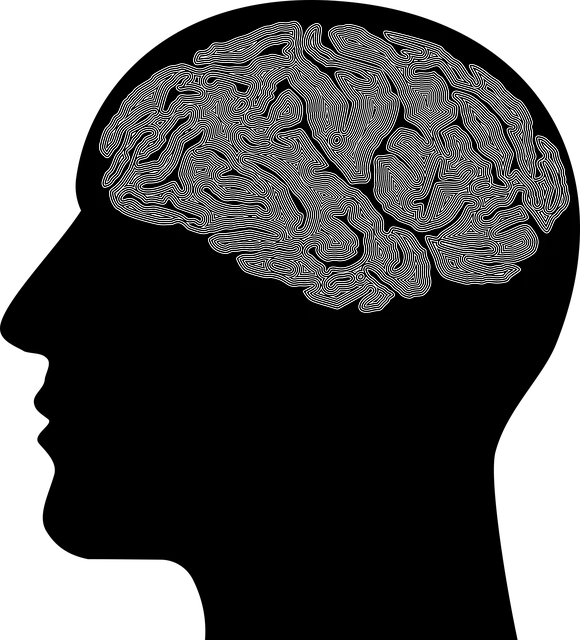Englewood Kaiser Permanente tackles misdiagnosis in mental health by enhancing clinical training for rare conditions and adopting a holistic assessment method. Their focus on depression prevention, integrating AI algorithms, mindfulness practices, and resilience building, ensures tailored care and improved patient outcomes under their innovative mental health coverage. This personalized approach empowers patients to manage their mental well-being effectively.
Mental illness diagnosis accuracy is a critical aspect of patient care, with misdiagnosis rates in mental health reaching alarming levels. This article delves into strategies aimed at enhancing diagnostic reliability, focusing on Englewood Kaiser Permanente’s innovative approach. We explore how their comprehensive mental health coverage incorporates advanced techniques to improve accuracy, ultimately impacting positive patient outcomes. By understanding the challenges and adopting cutting-edge methods, healthcare providers can navigate the complex landscape of mental illness diagnosis more effectively.
- Understanding the Challenge: Misdiagnosis Rates in Mental Health
- Englewood Kaiser Permanente's Approach to Enhancing Diagnosis Accuracy
- Innovative Strategies for Improving Diagnostic Reliability
- The Impact of Accurate Diagnoses on Patient Care and Outcomes
Understanding the Challenge: Misdiagnosis Rates in Mental Health

Mental health professionals face a significant challenge when it comes to accurate diagnoses due to the complex nature of mental illness and its diverse presentation in individuals. Studies show that misdiagnosis rates within the realm of mental health are alarmingly high, with some conditions being frequently overlooked or confused with others. This is particularly concerning given that early and precise diagnosis plays a pivotal role in effective treatment and improved outcomes for patients.
Englewood Kaiser Permanente, recognizing the impact of accurate mental health coverage, has implemented several initiatives to boost confidence in diagnosis. These efforts include enhancing clinical training programs to improve recognition of less common conditions and promoting a holistic assessment approach that considers each patient’s unique emotional healing processes. By focusing on Depression Prevention as a key strategy, they aim to reduce misdiagnosis rates, ensuring individuals receive the appropriate care for their specific mental health needs.
Englewood Kaiser Permanente's Approach to Enhancing Diagnosis Accuracy

Englewood Kaiser Permanente has pioneered an innovative approach to enhancing mental health diagnosis accuracy, focusing on holistic care and patient-centered strategies. Their comprehensive program integrates advanced assessment tools with evidence-based practices tailored to individual needs. By combining clinical expertise with cutting-edge research, the organization aims to improve outcomes for patients grappling with various mental health conditions.
This approach emphasizes not just identifying symptoms but also understanding the unique circumstances and strengths of each patient. Through specialized training in Mood Management, Resilience Building, and Mind Over Matter principles, healthcare professionals are equipped to provide more precise diagnoses. This personalized methodology ensures that treatment plans align seamlessly with individual goals, fostering a supportive environment for recovery and enhanced mental well-being.
Innovative Strategies for Improving Diagnostic Reliability

Englewood Kaiser Permanente’s mental health coverage has led the way in innovative strategies to improve diagnostic reliability. One such approach is integrating advanced assessment tools and technology, such as artificial intelligence algorithms designed to analyze complex data patterns and provide more accurate diagnoses. These tools can help professionals detect subtle nuances that might be missed through traditional methods, thereby enhancing the overall accuracy of mental health assessments.
Additionally, Englewood Kaiser Permanente focuses on promoting emotional well-being through various techniques, including mindfulness practices and resilience building. By empowering individuals with these coping mechanisms, the organization facilitates emotional healing processes and supports more precise diagnoses. This holistic approach not only improves diagnostic reliability but also enhances patient outcomes by addressing both mental and emotional aspects of healthcare.
The Impact of Accurate Diagnoses on Patient Care and Outcomes

Accurate mental illness diagnoses are pivotal in patient care and outcomes at healthcare facilities like Englewood Kaiser Permanente. When a patient receives a precise diagnosis, healthcare providers can develop tailored treatment plans that effectively address their specific condition. This personalized approach enhances patient satisfaction by demonstrating compassionate understanding of their unique challenges. Moreover, accurate diagnoses significantly reduce the risk of misprescribed medications or inappropriate treatments, which are common consequences of erroneous mental health assessments.
By fostering trust between patients and caregivers, correct diagnoses empower individuals to manage their mental health proactively. This empowerment extends beyond the clinical setting, encouraging individuals to prioritize well-being through Burnout Prevention Strategies for Healthcare Providers, Inner Strength Development, and Confidence Boosting initiatives. Ultimately, the goal is to enhance overall wellness and quality of life for those navigating mental illness, underpinned by robust mental health coverage like that offered by Englewood Kaiser Permanente.
Mental illness diagnosis accuracy is a multifaceted challenge, with misdiagnosis rates highlighting the need for improvement. Englewood Kaiser Permanente’s innovative approach, focusing on comprehensive assessment and data-driven insights, demonstrates one effective strategy. By employing advanced tools and training, they strive to enhance diagnostic reliability, ultimately improving patient care and outcomes for those seeking mental health coverage. Continued efforts to refine diagnosis processes are crucial in ensuring individuals receive the most appropriate and effective treatments.






